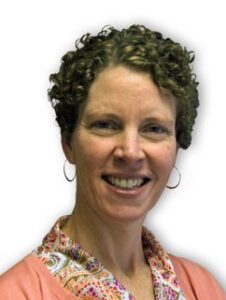Residency
Residency Director
 The mission of the University of North Carolina (UNC) Department of OBGYN Residency Program is to educate, train and prepare graduate residents to independently and competently practice the specialty of obstetrics and gynecology. Graduates are prepared to be specialists in obstetrics and gynecology, to act as consultants for other physicians, and to achieve certification by the American Board of Obstetrics and Gynecology. Our mission is accomplished through a diverse educational program which includes active engagement with the clinical, educational, and research work of the Department’s divisions which represent the entirety of specialty and subspecialty care in OBGYN, as well as global women’s health.
The mission of the University of North Carolina (UNC) Department of OBGYN Residency Program is to educate, train and prepare graduate residents to independently and competently practice the specialty of obstetrics and gynecology. Graduates are prepared to be specialists in obstetrics and gynecology, to act as consultants for other physicians, and to achieve certification by the American Board of Obstetrics and Gynecology. Our mission is accomplished through a diverse educational program which includes active engagement with the clinical, educational, and research work of the Department’s divisions which represent the entirety of specialty and subspecialty care in OBGYN, as well as global women’s health.
Aligned with the UNC School of Medicine, our Department and Residency Program are committed to fostering a diverse, equitable and inclusive workplace that enhances our learning environment, innovative research, and the quality of care available to all. We are committed to combating systemic racism, health disparities, and social injustice. We believe that a culture of diversity, equity and inclusion leads to new ways of thinking, behaving and caring. We embrace the Association of American Medical Colleges’ (AAMC) definition of diversity, including the recognition that diversity is not limited to gender, race and ethnicity, but must also include age, socioeconomic status, sexual orientation, gender identity, religious commitment, physical ability and other varied backgrounds and life experiences.
The community served over the course of the four years of residency training will include the local, regional, and national communities of patients referred to the University of North Carolina Department of OBGYN. The mission of the OBGYN Residency Program directly aligns with the mission of the sponsoring institution, UNC Healthcare, which is to serve the citizens of the state of North Carolina and those who present to us for care from beyond our state’s borders.
Why Choose UNC?
Residency Objectives
- Our goal is to create a clinically rigorous and supportive environment where every resident will thrive on their journey to independent practice.
- We will train you to become a leader in your chosen area of passion, as a general obstetrician & gynecologist or as a subspecialist.
- You will learn from a diverse patient population and a broad group of both generalists and subspecialists who will help you learn evidence-based and patient-centered care.
- You will work with effective teams – faculty, fellows, co-residents, nurses, midwives and social workers- who practice collaborative medicine.
- Our goal is for you to be a compassionate, engaged physician who pursues excellence and equity when working one-on-one with patients, as part of a team, and for your broader community.
Application Timeline
- Application deadline of 10/1/2023
- Interview offers released on 10/24/2023
- *limited to the number of interview spots
- minimum of 48 hours to respond to interview offers
- Interviews will occur no earlier than 10/31/2023
- UNC Virtual Interview Dates:
- November 4, 2023
- November 18, 2023
- December 2, 2023
- Notify applicants of final status (e.g. waitlist, rejection) by 12/2/2023
Clinical Curriculum
UNC Department of Obstetrics and Gynecology_Resident Clinical Curriculum
Resident Research
Research is a key component of the resident experience, providing learners with an opportunity to learn first-hand how to answer important questions through scientific inquiry. Residents participate in mentored research projects in their area of interest, whether clinical research, basic science, public health, or global health. Residents present works-in-progress sessions during the PGY2 year as they are developing their projects and then present their final results at our Resident Research Day at the end of the PGY3 year. Many residents use dedicated elective time during the PGY3 year to work on their research. Multiple departmental resources exist to support resident research, including a vast array of engaged mentors, other institutional centers to support specific needs (survey development, policy analysis, etc.), competitive research funding and an endowment to support travel to present at conferences. For many residents, even those not considering a research career, the relationships formed, and lessons learned during completion of the research project become a core part of their residency experience.
Our Resident Directories
Visit our news post to see our incoming residents.